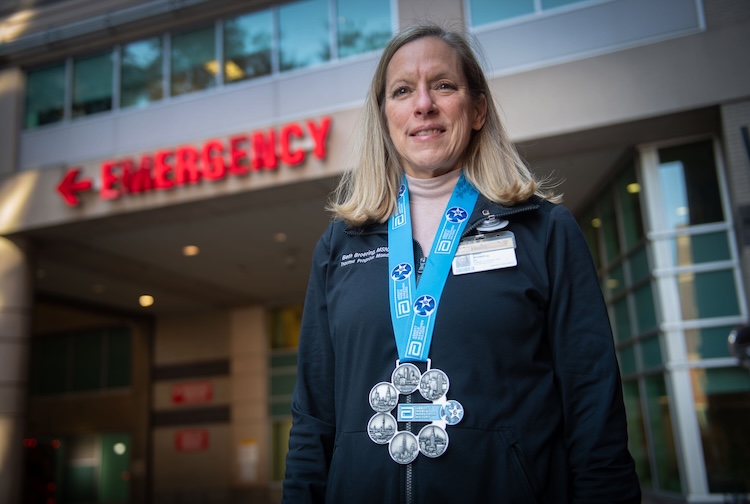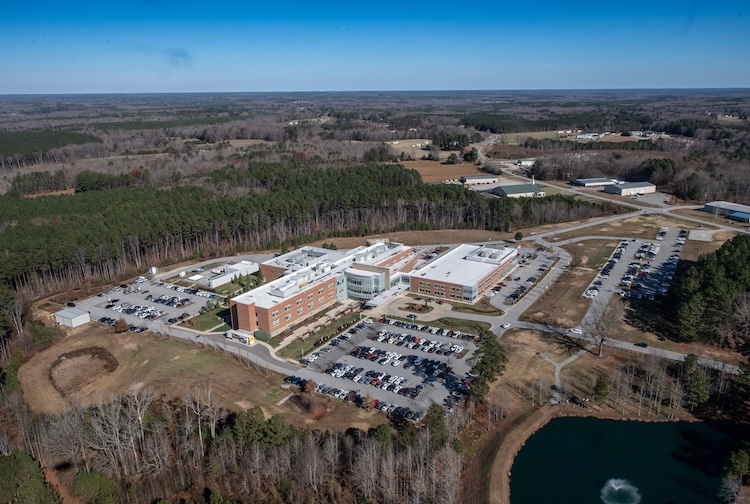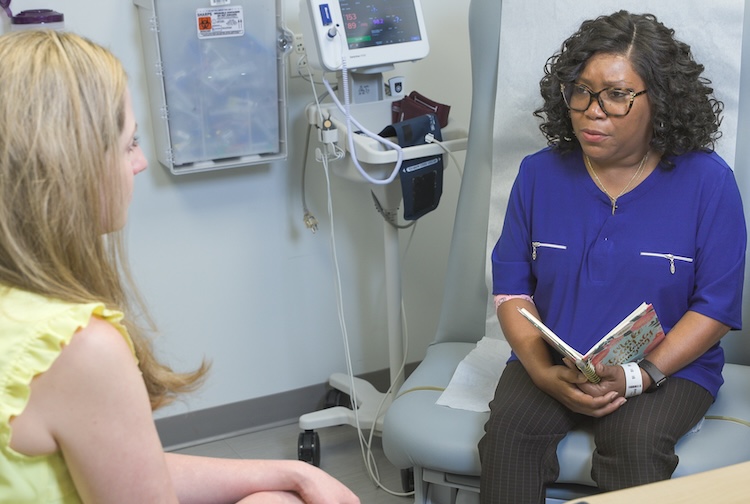COVID-19: What cancer patients should know
May 26, 2020
Updated May 26, 2020
At VCU Massey Cancer Center, the health and safety of our patients and staff is our top priority. We are closely monitoring the coronavirus (COVID-19) situation and have plans in place. Our staff is highly trained at screening for and managing infectious diseases.
What is the coronavirus?
Human coronaviruses are a family of seven known types of viruses that are found throughout the world. The type of coronavirus in the news right now is the 2019 novel coronavirus (COVID-19), which causes mild to severe breathing problems.
What are the signs of COVID-19?
COVID-19 causes cold or flu-like symptoms. These may include fever, cough, difficulty breathing, sore throat, body aches or chills. It can cause serious problems, such as pneumonia and even death, especially in older people and people with other health problems, including cancer.
How does COVID-19 spread?
The virus spreads from person to person through droplets when someone with COVID-19 coughs, sneezes, speaks or exhales near another person. These droplets can land on people and surfaces within about 6 feet. COVID-19 is a new disease, and we are still learning how it spreads, the severity of illness it causes and to what extent it may spread in the United States.
Are there special concerns for people and children with cancer?
People and children with cancer often have weakened immune systems and are considered “immunocompromised.” This is usually due to treatment for their cancer, such as a bone marrow transplant for blood cancer or intensive chemotherapy for certain types of leukemia. But people can also become immunocompromised from intense radiation therapy or surgery. Having a weak immune system makes it harder for the body to fight off diseases, so it's important for people with cancer and their family members to closely follow steps to protect themselves.
Should my child or I stop taking medications?
We do NOT recommend stopping any long-term medications because maintaining good control of underlying conditions is one of the best strategies to avoid more severe complications. Avoiding flares of underlying disease will help prevent unnecessary trips to the hospital, where patients who could have COVID-19 are likely to be seeking care. It is a good idea to make sure you have refilled prescriptions and have at least a two-week supply of medications on hand.
What precautions are VCU Health and Massey Cancer Center taking to protect patients?
The health and safety of our patients is our top priority. At VCU Health and Massey Cancer Center, we are closely monitoring COVID-19 and have implemented several measures for our patients, employees and visitors to ensure their safety. Learn about these precautions on the VCU Health website. Visit the Massey Cancer Center for safety information specific to Massey.
Is it OK for me or my child to come to VCU Massey Cancer Center for my cancer treatment?
If you or your child do not have fever or respiratory symptoms, we recommend keeping your scheduled cancer treatment appointments. If you or your child are having mild symptoms, we recommend rescheduling an appointment if it is not urgent. If you or your child have symptoms and the appointment is urgent, please contact your Massey medical team prior to coming to see us so we can take appropriate precautions.
Our clinics remain open and operational, but the way we deliver care is changing to best serve all of our patients during COVID-19, while offering a safe environment for providing and receiving care. For information on our visitor policy and parking, please visit our Massey Cancer Center updates page.
If you are concerned about coming to VCU Massey Cancer Center for your care, please consult with your Massey medical team through the My VCU Health patient portal or by calling your Massey doctor's office.
What do I need to know before I go to an appointment or visit VCU Massey Cancer Center?
If you have cold or flu-like symptoms (fever, cough, difficulty breathing, sore throat, body aches or chills), you must call your Massey doctor's office before coming to Massey Cancer Center, even if you have an appointment, so we can take proper precautions to avoid the spread of illness. Also, if your friends or family have any cold or flu-like symptoms, they should not visit or come with you to Massey at this time. For your protection, we are currently limiting the number of visitors and/or people who can accompany you. Learn more about these changes at Massey Cancer Center.
What should I do if I was potentially exposed to someone diagnosed with COVID-19?
If you were notified by your local health department of a potential exposure to someone with COVID-19 and you have no symptoms, call your Massey doctor's office to tell them about the exposure. They will give you instructions on what you should do. If you have cold or flu-like symptoms (fever, cough, difficulty breathing, sore throat, body aches or chills), call your doctor's office before coming to Massey. Your doctor's office will give you instructions so we can deliver care to you safely.
How can I protect myself from getting COVID-19?
The best way to prevent infection is to avoid being exposed to the virus. The CDC recommends the following:
- Avoid close contact with people who are sick.
- Avoid touching your eyes, nose and mouth with unwashed hands.
- Wash your hands often with soap and water for at least 20 seconds. Use an alcohol-based hand sanitizer that contains at least 60% alcohol if soap and water are not available.
- Stay home when you are sick.
- Cover your cough or sneeze with a tissue, then throw the tissue in the trash.
- Clean and disinfect frequently touched objects and surfaces.
- Wear a face mask in public settings where other social distancing measures are difficult to maintain, such as grocery stores and pharmacies.
Visit the Massey Cancer Center COVID-19 News Center for more information pertaining to our cancer services during the pandemic.




